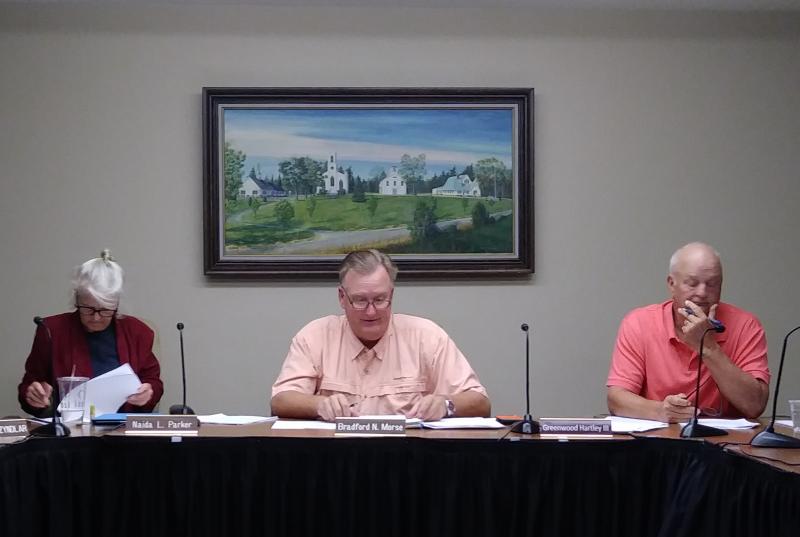Selectmen plan proactivity for Rochester's future
It's time to get the ball rolling on Rochester's future, according to the town's Board of Selectmen.
"We’ve been struggling for far too many years that there is no money, and that’s the truth. But we have to at some point decide what we’re going to do, because as time goes on we aren’t getting any closer to resolving how we need to change," Selectman Woody Hartley stated. "If we don't deal with it, every year nothing will change."
The selectmen expressed concern over stagnant town bylaws and a lack of future planning. The conversation sprang up in reaction to opposition to several large-scale projects such as multiple solar farm proposals. The selectmen also mentioned a lack of commercial space in the town, which they felt might be inhibiting an expansion of the town's economic base.
A lot of the reason for a stagnation and a relative lack of future planning, they acknowledged alongside Planning Board Chairman Arnie Johnson, was a long-term lack of a town planner. Rochester's Town Planner position had been vacant for some time before Charles Starrett stepped into the role earlier this year.
“We haven’t had a planner," Selectman Brad Morse said, explaining that in previous years, the Town Planner had organized meetings between most of the town boards to discuss the town's future and policy decisions. Those meetings fell by the wayside as the Town Planner position remained vacant.
"We came up with a lot of zoning bylaw changes in those meetings," Morse said. "I want to re-institute those meetings, preferably after the special town meeting because I know how busy we’re going to be—but we need to start discussing things.”
“We want to involve the Planning Board on expansion, we need to talk about bigger things. We need input from the board and the townspeople on what Rochester is," Hartley added. "People want this idyllic country farm idea, but more and more families are moving in. Our neighboring towns have more of an ability to pay, and that’s going to catch up with us. Is there a need for additional commercial space?"
Johnson's review of the problem centered on what he described as an opposition to zoning changes.
“We’re seeing some knee-jerk legislation being thrown around," he said. "People are saying one thing but they don’t want to do it. When you read the Open Space Plan, people want to be able to build their house but they want the rest of the town to stay as is."
Johnson noted that there had been some changes to throw out more options, but—as he saw it—in the last 10 years, the town voters had not expressed any appetite to change zoning. The result, he added, was an increasing residential town with a tiny economic base to support it, particularly as most of the land in the industrial district has now been developed and little land remains.
He added that he was all in favor of re-starting the multi-board meetings. "I think right after the Town Meeting would be a great time to start.”
Hartley also suggested the possible formation of an economic committee, which would tie into Rochester's agricultural industry. He noted a previous plan to install several greenhouses next to SEMASS in Rochester's industrial district, which would use the excess carbon dioxide generated by the plant to speed the growing rate of plants.
"That was my plan," said Morse, who said that the plan hadn't come to fruition for various reasons. "It wouldn't have been a big tax draw for the town anyway."
"It would've been a positive step forward that wasn't just adding more kids to the school system," Hartley told him.












